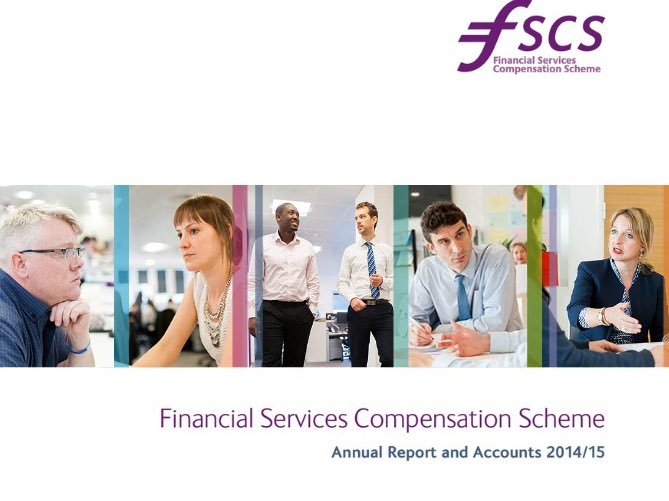The FSCS and Financial Ombudsman Service could both be set to undergo significant reforms after recommendations published this morning by the FAMR.
Risk-based levies should be considered as part of the ongoing review of the FSCS, the panel suggested.
The panel’s report revealed that it has been working with the FOS to find ways to boost transparency and tackle uncertainty for advisers.
The FAMR report stated: “One specific issue that firms have identified is that the unpredictable nature of the Financial Services Compensation Scheme levy makes it hard to plan effectively, and that the cost of funding the levy is not necessarily being borne by those that create costs for the scheme.
“FAMR recommends that the FCA’s review of how the FSCS is funded should explore risk-based levies, reforming the FSCS funding classes and whether contributions from firms could be smoothed by making more extensive use of the credit facility available to the FSCS.”
There were also two key concerns raised during the review about the role of the Financial Ombudsman Service, the panel said. The first was the lack of a longstop after which consumers cannot complain about financial advice.
Some respondents suggested that this indefinite liability has an impact on the ability to obtain investment into advisory businesses or to sell them and argued that a standard longstop should be introduced, the FAMR report said.
The panel said it considered a blanket fifteen-year limit of liability for financial advice but concluded, “that this would not be in the interest of consumers, especially given the risks that arise with long-term products”.
The second concern raised during the review was that the Financial Ombudsman Service “might apply the standards of today when judging complaints made some years ago, rather than the standards applicable at the time”.
Although the panel expressed support for the FOS it said “more can be done to allay firms’ concerns”.
Do you broadly agree with the recommendations of the #FAMR report?https://t.co/E26oRyVIJy
— FP Today (@FPTodayNews) March 14, 2016
The report stated: “FAMR has worked with the Financial Ombudsman Service to develop a number of recommendations aimed at increasing transparency and promoting best practice in order to reduce uncertainty for firms, while preserving high standards of consumer protection and ensuring full redress where appropriate.”
Richard Freeman, Old Mutual Wealth chief distribution officer, said: “High-cost and unpredictability in the FSCS levy has become a burden on adviser firms, prohibiting small business owners from investing for the future.
“The FCA and Treasury have today recognised these concerns and we believe that a more proportionate FSCS levy on advisers will help create economic conditions that allow firms to grow.”
Key Recommendations relating to the FSCS and FOS from the report:
Recommendation 20:
The FCA regularly undertakes funding reviews of the Financial Services Compensation Scheme (FSCS), and FAMR recommends that the 2016 FSCS Funding Review, should specifically explore risk-based levies, reforming the FSCS funding classes, and more extensive use of the FSCS credit facility. The review should explore the merits, risks and practicalities of alternative approaches.
Recommendation 21:
Following its review of FSCS funding, in light of evidence received as to the impact of the professional indemnity insurance (PII) market on FSCS funding, the FCA should consider whether to undertake a review of the availability of PII cover for smaller advice firms.
Recommendation 22:
The Financial Ombudsman Service should consider undertaking regular ‘Best Practice’ roundtables with industry and trade bodies where both sides can discuss relevant issues such as the evidence used when considering historic sales and suitability requirements.
Recommendation 23:
The Financial Ombudsman Service should publish additional data on its uphold rates, specifically around cases where advice was given more than fifteen years before the complaint was made, and a breakdown of financial adviser uphold rates by product. The Financial Ombudsman Service should consider the best way to do this as part of its review into its approach to publishing data more generally and update its stakeholders later this year.
Recommendation 24:
The Financial Ombudsman Service should consider whether to establish a more visible central area for firms on its website by summer 2016, bringing existing resources (e.g. summary of approach, technical guidance notes, case studies etc) together in one place to help advisers.
Recommendation 25:
The report of the Financial Ombudsman Service’s appointed Independent Assessor should be expanded to include a more in-depth analysis of the cases they consider and identify potential areas for process improvement from 2017.
Recommendation 26:
The FCA should not introduce a longstop limitation period for referring complaints to the Financial Ombudsman Service. As part of the review in 2019, the FCA and HMT will consider any ongoing trends and the impact of the Financial Ombudsman Service’s complaints data relating to advice on long-term products.

